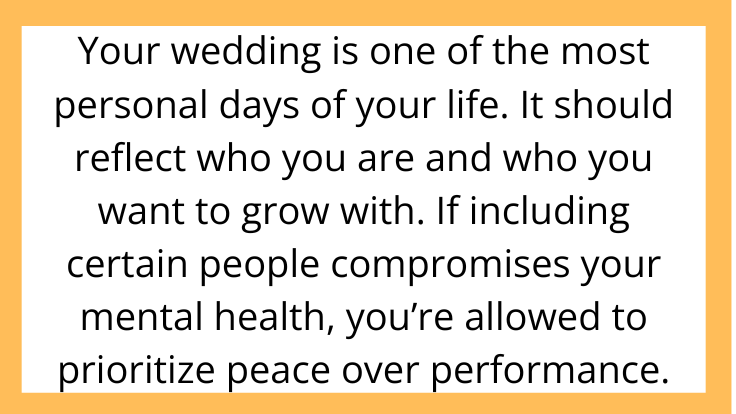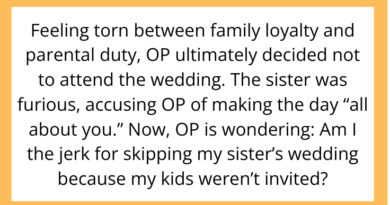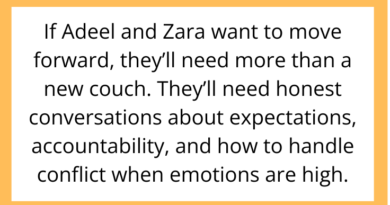AITAH for Not Inviting My Parents to My Wedding After Years of a Strained Relationship?
Weddings are often viewed as a celebration of unity, love, and family. But what happens when your family has been a source of pain for years? That’s exactly what one Redditor asked on r/AITAH after choosing not to invite their parents to their wedding due to a long history of emotional strain and unresolved issues.
This decision stirred a heated online debate, dividing opinions about family obligations, emotional boundaries, and the true meaning of a wedding day. Let’s unpack this emotionally complex situation and explore both sides.
The Backstory: When Family Isn’t as Supportive as They Should Be

The original poster (OP) shared that their relationship with their parents had always been difficult. Growing up, they were often criticized, emotionally neglected, and unsupported in their personal and career choices. Therapy helped OP recognize the toxic dynamics, and over time, they limited contact for their mental well-being.
Fast forward to OP’s wedding planning: They decided to keep the guest list intimate, inviting only people who genuinely supported and uplifted them. This meant excluding their parents. Word got out, and extended family began labeling OP as ungrateful, dramatic, and heartless.
But OP insists the decision wasn’t about revenge—it was about peace.
When Boundaries Collide with Expectations

Choosing not to invite close family to a wedding challenges cultural and societal norms. In many communities, family presence is seen as mandatory, no matter the emotional cost. But in reality, here’s what matters more:
-
Emotional safety: Weddings should feel joyful, not anxiety-inducing.
-
Authenticity: You deserve to be surrounded by people who love and respect you.
-
Healing choices: Cutting toxic ties, even temporarily, is a form of self-care.
It’s not about burning bridges; it’s about building a life on healthier ground.
What Reddit Had to Say

The post exploded with thousands of comments. A majority supported OP, saying no one should feel obligated to include people who have consistently caused harm.
Some, however, argued that OP might regret the decision later. “You only get married once,” one commenter said. “Try to find closure, if not reconciliation.”
Others warned that not inviting parents could escalate long-term family drama—but acknowledged that setting boundaries often comes with backlash.
How to Handle Weddings When Family Is Complicated
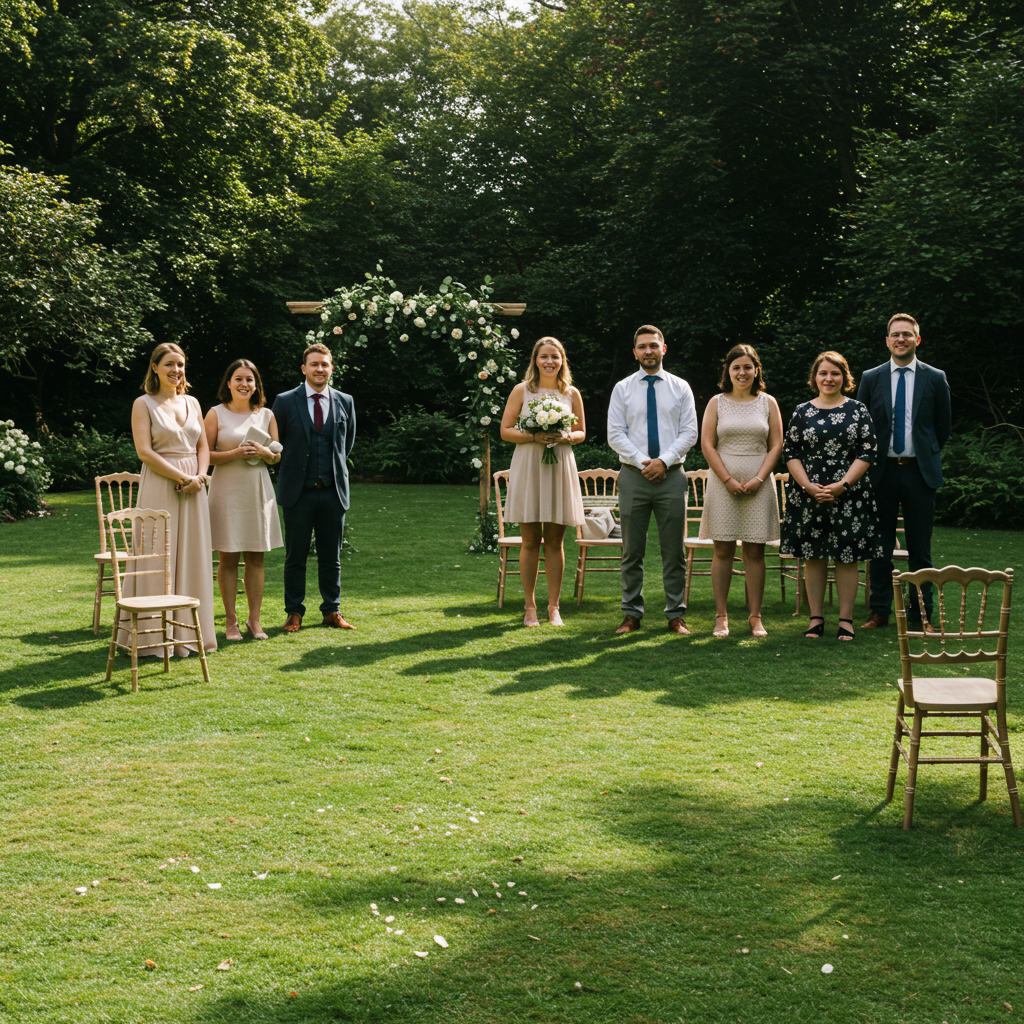
If you’re in a similar situation, consider the following:
1. Reflect on Your Why
Ask yourself: Is this about protecting your peace or making a statement? Your answer will help you stay grounded in your decision.
2. Communicate If You Can
If it’s safe and emotionally manageable, explain your decision privately. They may not accept it—but you’ve done your part.
3. Create Your Circle of Support
Surround yourself with people who genuinely care. Chosen family is just as important as biological ties.
4. Prepare for Reactions
Even if your decision is valid, others may not understand. Be ready for pushback and lean on your support system.
The Bigger Picture: Weddings Reflect Your Values
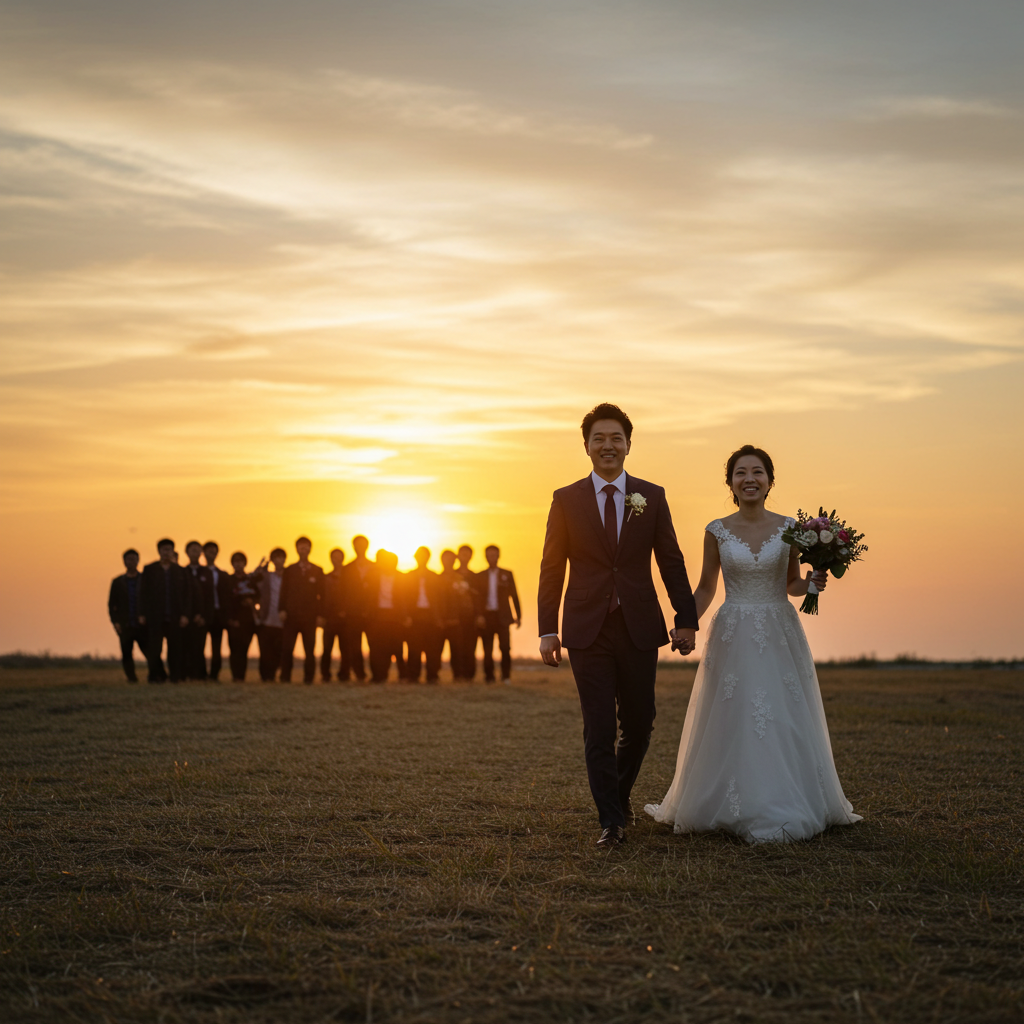
Your wedding is one of the most personal days of your life. It should reflect who you are and who you want to grow with. If including certain people compromises your mental health, you’re allowed to prioritize peace over performance.
Family isn’t about blood alone—it’s about consistent support, love, and respect.
Final Thoughts

So, AITAH for not inviting your parents to your wedding? Not necessarily. Choosing to protect your emotional well-being on your special day is a deeply personal—and often brave—decision. It may be painful, and it might disappoint others, but it doesn’t make you a bad person.
